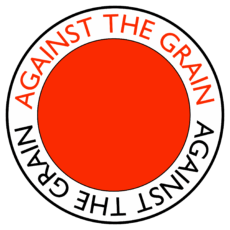Against the Grain – February 22, 2010
NYU professor Vivek Chibber explains why ruling elites are biased toward the capitalist class rather than toward working people.

12:00 PM Pacific Time: Mondays - Wednesdays
Acclaimed program of ideas, in-depth analysis, and commentary on a variety of matters—political, economic, social, and cultural—important to progressive and radical thinking and activism. Against the Grain is produced and hosted by Sasha Lilley.
NYU professor Vivek Chibber explains why ruling elites are biased toward the capitalist class rather than toward working people.
Tariq Ali talks about Afghanistan, Pakistan and US involvement; John Perkins describes the international economic framework that keeps poor nations poor.
A few months before his death, Howard Zinn speaks with Sasha Lilley.
The University of California hikes student fees and lays off thousands. The economic model promoted by the IMF and the US Treasury leaves millions at the mercy of huge corporations. Is there a connection? Will Parrish sought an answer by way of an investigation into Richard Blum, UC regent, business tycoon, and husband of Senator … Continued
Daniel Geary has written a book about C. Wright Mills’s ideas and their impact on a number of social movements, including the New Left.
Litigator Michelle Alexander talks to Sasha Lilley about her book “The New Jim Crow: Mass Incarceration in the Age of Colorblindness.”
Historian Iain Boal talks about the dangers of being swept into the politics of the abyss when thinking about, and acting against, global warming.
In “Sunlight,” playwright Sharr White presents a John Yoo-like character in a pitched battle with a liberal university president. Also, Andrew Lichterman comments on the prospects for nuclear war in a time of global economic crisis.
Ellen Leopold, author of “Under the Radar: Cancer and the Cold War,” talks to Sasha Lilley about cancer, radiation, and militarism.
In his book “Born to Be Good,” UC Berkeley psychologist Dacher Keltner argues that goodness is wired into our nervous sytems and encoded in our genes.